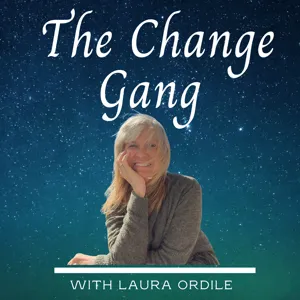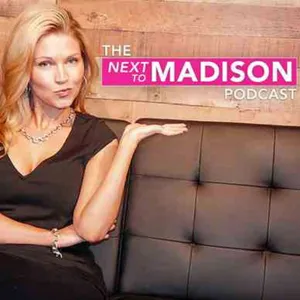Podcast Summary
Experiencing the power of hypnosis: Volunteers under hypnosis acted uncharacteristically, leaving them feeling relaxed and disconnected, but hypnosis is a controversial and potentially risky practice.
Hypnosis, as demonstrated by Jim Spinato, can make individuals perform actions beyond their conscious control. During his hypnosis show at Mohegan Sun Casino, volunteers were put into a trance-like state and given suggestions, causing them to behave uncharacteristically. The experience left the volunteers, including the speaker, feeling relaxed and disconnected from their surroundings. However, it's important to note that hypnosis can be a controversial and potentially risky practice, as it involves manipulating one's subconscious mind. The speaker's personal experience also highlights the fact that hypnosis shows often contain explicit content and should be approached with caution.
Exploring the science behind hypnosis: Hypnosis can induce significant changes in behavior and perception, and is used in clinical settings to alleviate health issues like anxiety, pain, and weight loss.
Hypnosis, whether used for entertainment or healing, can induce profound changes in people's behavior and perception. The bizarre incidents described in the podcast, such as lap dances under hypnosis, might seem like mere theatrics. However, researchers argue that there's more to it than just acting. When hypnosis is used in a clinical setting, it can help alleviate various health issues, including anxiety, pain, and weight loss. Professor Philip Muskin, a psychiatrist who has been using hypnosis for over 3 decades, confirms that it can bring about significant changes. The key is to understand the process behind hypnosis and separate the myths from the facts. By delving deeper into the science of hypnosis, we can uncover its true potential and debunk the misconceptions surrounding it.
Doctor's Fingers Unable to Separate After Hypnosis: Hypnosis is a state of heightened focus and suggestibility, induced through various methods, allowing for increased responsiveness to suggestions in a clinical setting.
Hypnosis is a state of focused concentration where a person becomes more responsive to suggestions. This was illustrated in a story about a doctor being hypnotized and being unable to separate her fingers. The hypnotist gave her the suggestion that she couldn't separate her fingers, and when she tried to take a cup of coffee, she was unable to do so and fell to the ground. This experience left the doctor, Philip Muskin, amazed and led him to study hypnosis further. He explained that hypnosis can be induced through various methods, such as rolling the eyes up or focusing on a moving object. The key components of hypnosis are absorption and suggestibility, which allow the person to narrow their focus and be more open to suggestions. In a clinical setting, a hypnotist can make suggestions to help with various issues, such as quitting smoking. The trance is ended by the hypnotist bringing the person back to full awareness. However, the science behind how this focus state works and why it makes people more responsive to suggestions remains a mystery.
The power of intense focus in hypnosis: Intense focus can make our minds more suggestible, potentially tricking our brains into believing untrue suggestions, as seen in hypnosis research.
Intense focus can make our minds more suggestible, potentially even tricking our brains into believing things that aren't true. Research on hypnosis suggests that when we're deeply focused, certain areas of the brain become more active in response to suggestions, even when those suggestions aren't actually being presented. This phenomenon, while not fully understood, may be due to some sort of brain trickery. Despite the intrigue, much about the workings of hypnosis remains a mystery. While we may not have a definitive explanation, personal experiences and anecdotal evidence can be compelling. It's also worth noting that not everyone is equally susceptible to hypnosis, and there may be a genetic component. Ultimately, the complexities of the human mind continue to baffle us.
The Spectrum of Hypnotizability and Its Ethical Implications: Highly hypnotizable individuals can be influenced greatly under hypnosis, but the ethical implications and limits of mind control remain uncertain.
Hypnotizability is a spectrum, with most people falling in the middle, and a small percentage being highly hypnotizable. These individuals can be influenced to a great extent under hypnosis, as shown in a study where they saw a stranger in the mirror instead of themselves. However, the extent of mind control and its ethical implications remain uncertain and unexplored. The speaker's personal experience of feeling drugged and woozy after a brief hypnosis session confirmed her moderate hypnotizability. The study of highly hypnotizable individuals, like Blake, reveals their susceptibility to profound suggestions, but the limits of mind control are yet to be determined.
CIA's exploration of hypnosis for covert ops: Despite CIA's efforts, hypnosis proved unreliable for manipulating actions against one's will, as shown in experiments where subjects distinguished real from imagined commands.
While hypnosis has been explored for its potential use in covert operations, the CIA discovered through research that it's highly unlikely to make someone do something they don't truly want. A hypnotized person can distinguish between real and imagined commands, as shown in an experiment where a woman carried out fake murders but refused to undress. This finding led the CIA to conclude that hypnosis is not a reliable method for manipulating someone's actions against their will. The CIA's explorations into the limits of hypnosis, which included projects like Bluebird, Artichoke, and MK Ultra, are now largely considered controversial. Today, hypnosis is used for therapeutic purposes rather than covert operations.
Exploring the Effectiveness of Hypnosis in Managing Pain: Hypnosis, a deep relaxation technique, shows effectiveness in managing certain types of pain, similar to CBT and mindfulness. Prof. Muskin uses it to help patients cope with pain when other methods fail. Hypnosis blocks pain sensations or replaces them with feelings of relief, but its impact on smoking, weight loss, and anxiety is more mixed.
Hypnosis, a state of deep relaxation and heightened suggestibility, has shown promising results in managing certain types of pain, as per a meta-analysis of over 40 studies. Hypnosis is considered as effective as other methods like CBT and mindfulness in managing pain. Prof. Philip Muskin uses hypnosis to help patients cope with pain, sometimes when other methods like pills have failed. Hypnosis works by putting the patient in a trance and making suggestions to block pain sensations or replace them with feelings of relief. However, the evidence for hypnosis in helping people quit smoking, lose weight, or deal with anxiety is more mixed. Some studies suggest it can help in specific instances, but the placebo effect might also be at play. Hypnosis can physically relax a person, as shown by a review of heart rates, breathing, and sweating. It's important to note that hypnosis isn't about mind control but rather a tool to help people relax and potentially reframe their thoughts or experiences.
Exploring the power of hypnosis: Hypnosis enables intense focus on suggestions, bypassing conscious thoughts to access subconscious, useful for overcoming fears, changing behaviors, managing pain or anxiety, ultimately the individual's mind responds to the suggestions.
The power of hypnosis lies in the ability to focus the mind intently on suggestions given by a hypnotist. This focus allows individuals to bypass conscious thoughts and access the subconscious, making it a useful tool for overcoming fears, changing behaviors, and managing pain or anxiety. The misconception that a hypnotist holds power over the hypnotized person is debunked, as it is ultimately the individual's mind that responds to the suggestions. The episode's host, Wendy Zukerman, experienced this firsthand during the interview with Philip, as she was able to focus on the hypnotist's words and respond accordingly, even if it meant quacking like a duck. This demonstrates the internal power of hypnosis and the potential for personal growth and change.






